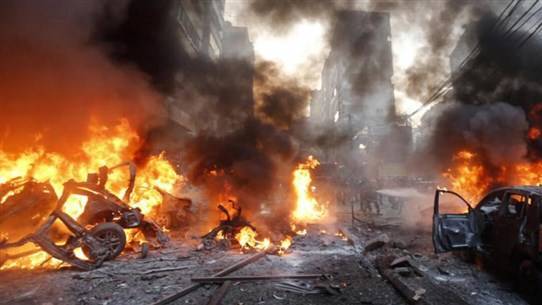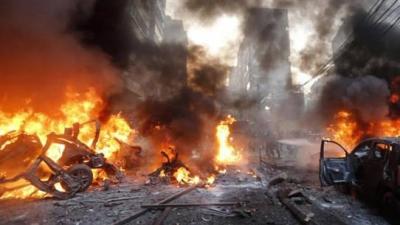The Turkish Ministry of Defense announced the execution of the aerial operation "Claw-Sword" in northern Syria and Iraq against positions used by PKK/YPG militants as a base for attacks on Turkey. They indicated that the operation aims to eradicate terrorism from its roots. This comes a week after the explosion that struck Taksim Street in Turkey, which continues to resonate regionally and internationally due to its significant repercussions on various Middle Eastern and European arenas, given Turkey's geopolitical position impacting both continents.
There is no doubt that the swift identification of the terrorist cell by Turkish security cut off avenues for speculation and formed a solid shield against terrorist organizations seeking to undermine the stability of the country, especially as some linked this explosion to ongoing efforts to resolve the crisis of Syrian refugees in Turkey and repatriate them to their homeland. This was evident through the opening of communication channels between the Turkish and Syrian regimes and the meetings that remained distant from the media, particularly between the Turkish intelligence chief and his Syrian counterpart Ali Mamlouk last September. This meeting holds significant importance for the situation on the ground in Syria, particularly in the north, where Turkish influence expands through armed Syrian factions.
The most pressing question remains: Is there a troubling link between the Taksim explosion and the refugee file amid the transformation of some camps into ticking time bombs exploited by terrorist organizations? In an interview with "Al-Markazia," Brigadier General Khaled Hamada rejected the connection between the Taksim explosion and Syrian refugees, asserting that they "live a better life than they did in their country before the war in 2011." He stated that such operations are adopted by terrorist groups that recruit elements from various nationalities.
While calling for patience for investigations concerning the Syrian woman who carried out the bombing, he clarified that Turkey is a target for the Kurds and extremist groups, recalling the failed coup intended to target President Recep Tayyip Erdoğan that was thwarted by authorities in Ankara. He pointed out that Turkish security agencies are active, evidenced by their presence via armed factions within a vast area in northern Syria, with extensions in several countries, making it difficult to threaten them. Hamada emphasized the leadership's role in Ankara and their strategy of avoiding reactive measures against refugees based on the identity of the woman who executed the act. President Erdoğan had previously stated his readiness to turn a page with the Syrian regime and meet with President Bashar al-Assad, having dispatched his intelligence chief to Damascus to coordinate on various issues.
Amid fears of the expansion of terrorist operations into Lebanese territory, especially given its weak security flank, Brigadier General Hamada does not hide his concerns regarding potential security operations, noting that the country is open to all these possibilities due to the absence of a vision to resolve the crisis. His analysis is supported by statements from Interior Minister Bassam Mawlawi, who revealed the arrest of terrorist cells preparing to carry out operations in certain areas. Hamada pointed out that Lebanon today is qualified for such operations and their exploitation in favor of the crises plaguing the country, especially as the presidential file remains stalled, institutions face further collapse, and there is no political resolution to halt it. All these factors, according to Brigadier General Hamada, create an environment conducive to terrorist operations or security chaos.




